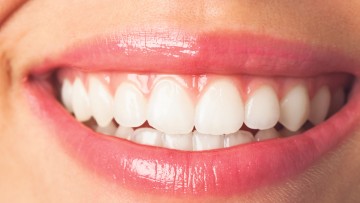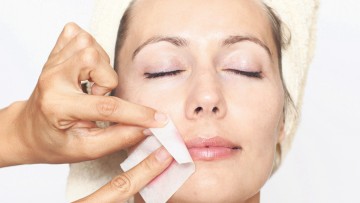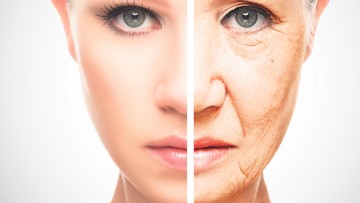Cheesy, probably. Yet in this selfie-obsessed era, a broad bright smile is every bit a sign of success as a designer bag and shoes.
At Wimpole Street Dental, Dr Richard Marques accredits the almost 80 per cent increase in demand for teeth whitening over the past five years not only to the influence of red carpet stars, but also to the rise of the metrosexual male whose grooming habits have intensified.
“In an ultra-competitive city like London, there’s the need to gain an edge – having a great smile is a huge asset,” he believes. Indeed, a recent New Zealand study found that whiter teeth can make you 10 per cent more employable and 20 per cent more attractive, while shaving five years off your looks into the bargain.
Chelsea clients prefer the London look, while those from Essex and Liverpool love an all-American smile
That said, very few people have naturally brilliant white teeth – a fact which even Americans are beginning to heed by toning down the gleaming Hollywood smile in favour of a more British natural look.
Known for his “conservative” touch, Dr Marques points out that fetchingly gap-toothed models Lara Stone and Lizzie Jagger are proof that dentally speaking less than perfect has its charms.
Still, it seems there’s a division over how white to go. “Chelsea clients prefer the London look, while those from Essex and Liverpool love an all-American smile,” he says.
What drives us into the bleach? Smoking and a penchant for red wine, tea and coffee stain the surface enamel, while antibiotics, such as tetracycline and doxycycline, can cause sub-surface stains. Calculus (tartar) can also dim tooth colour – a further reason for regular dates in the hygienist’s chair.
Teeth also yellow and darken with age as the brownish dentine at the tooth’s core thickens and deepens, while thinning surface enamel shows it up even more. Individual teeth may also darken once the root is removed.
[embed_related]
Not surprisingly, hundreds of thousands of “whitening” toothpastes are sold in the UK each year. Yet it’s a moot point whether these, or the home-whitening kits and strips which claim clinical results, can do anything more than remove surface staining.
Some claim to lighten teeth by up to eight shades, but here’s the catch. Under European Union law, over-the-counter whitening products are only deemed safe if they contain a maximum of 0.1 per cent hydrogen peroxide (the gold-standard whitening agent), a level which dentists say is too low to whiten teeth. Stronger products containing up to 6 per cent hydrogen peroxide are only available for home use following an examination and first treatment at a dentist’s practice or under their supervision.
In order to circumvent legislation, some manufacturers use alternative whitening agents, such as chlorine dioxide and hydrocarbon compounds. But according to dedicated whitening dentist Dr Wyman Chan, results are disappointing. “There needs to be more independent clinical studies to show whether chlorine dioxide can be a credible alternative to hydrogen peroxide,” he says.
Having carried out more than 10,000 whitening procedures over the past 20 years, Dr Chan believes the tried-and-tested home-whitening trays dispensed by dentists give consistently good results. You’ll also have a fair idea of what you’re signing up for. For £300 to £700, after an examination to check teeth and gums are healthy and your projected shade identified, impressions of your own teeth are taken and the trays are custom-built to fit. You then follow your dentist’s instructions for two to four weeks.
Can’t wait that long? The quickest methods are “laser” whitening where hydrogen peroxide gel is painted on to teeth, then activated by a light lamp in two or three 15 minute stages. In another system, carbamide peroxide home-bleaching trays are worn for 15 nights to prepare teeth for in-clinic deep-bleaching with stronger hydrogen peroxide.
Teeth are lightened by up to 14 shades with results lasting around three years. However, the price tag, starting from £500 to well over £1,000, might wipe the smile from your face.
Nevertheless, the British Dental Association (BDA) urge caution over cut-price whitening in high street clinics and beauty salons which may offer treatments illegally. Under the Dentists Act 1884, only dentists or dental health professionals, such as hygienists, dental therapists and clinical dental technicians, working to a dentist’s prescription can carry out teeth whitening.
Earlier this year, a series of Trading Standards Office raids revealed salons operating illegally, some using more than 200 times the permitted level of hydrogen peroxide. Stuart Johnson of the BDA says: “Non-dental professionals are not trained to consider a patient’s wider health and detect problems, such as gum disease, that impact on the suitability of an individual to have their teeth whitened. We are also concerned that some non-dental professionals carry out whitening treatments using inappropriate and potentially dangerous chemicals.”
The BDA’s advice is to check your dental professional is registered with the General Dental Council, the UK’s dental regulator, by visiting www.gdc-uk.org.
SMILE SUPPORT
Make the most of your new, bright smile with natural-looking beauty enhancements
Vitint Safe & White Whitening Kit is the only gel-tray whitening system approved by the British Dental Health Foundation to keep your new smile. Its peroxide-free, hydrocarbon formula claims to lighten teeth by up to seven shades in two weeks, but it works best for mild staining or maintaining clinical whitening. Cost £29.99.
Eye and Lip Peel at EF Medispa beauty therapy clinics is a “lunchtime” treatment that smooths pucker lines and fades “melanin moustache” caused by frequent hot waxing. A carrier solution controls the release of trichloroacetic (TCA) and lactic acids into the skin, improving penetration and ensuring even distribution. Acetyl glucosamine helps boost hyaluronic acid, so plumps and firms the lip surrounds. A course of four peels costs £1,200.
Juvéderm tailor their hyaluronic acid fillers to give subtle, natural results. Violift fills naso-labial folds or smile lines, while Volbella subtly plumps lips, smoothing wrinkles. The gel is smooth, feels soft and natural, and results last up to 15 months. Prices start from around £250.

SMILE SUPPORT




